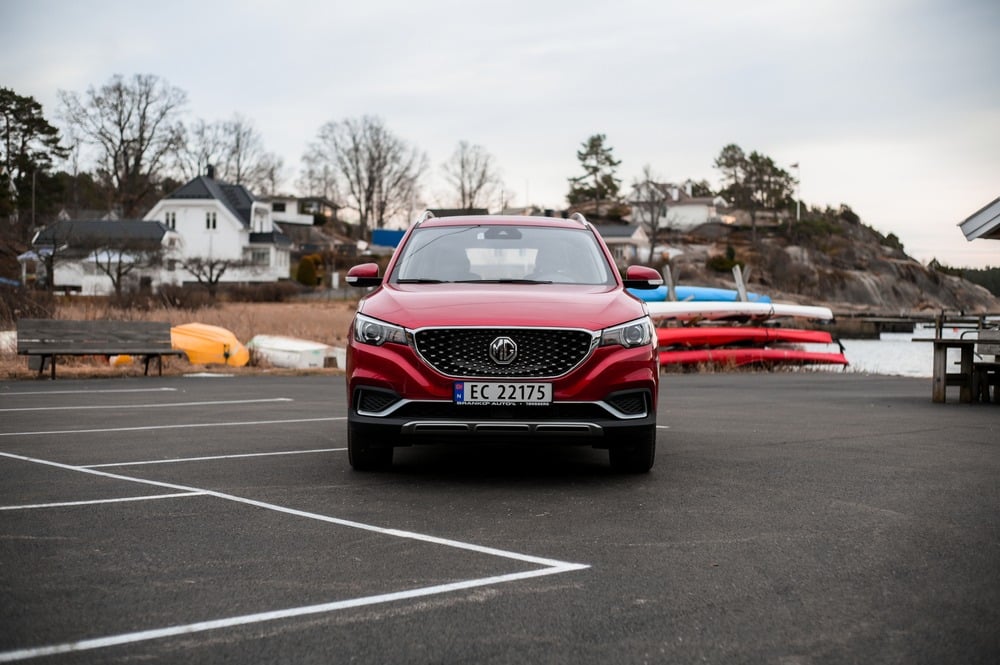Everything You Need to Know About Overseas Car Insurance for Military Personnel
Military Shipping, Tips, Vehicle ShippingWith 0 commentsThere is a lot of administrative and organizational work to complete once you receive your overseas deployment orders. You need to prepare to move to another country, which involves packing and running through the processes to ensure your family can come with you. Plus, you have the excitement of exploring a new country and new culture to contend with.
With all of these things on your mind, it’s easy to forget about your car.
Having a vehicle available during deployment can make your life a lot easier. That’s especially true if you’re bringing your family, who may need a vehicle for easier access to schools and stores. But if you’re bringing a vehicle with you, that means you’ve got to consider overseas car insurance for military personnel.
Your current car insurance likely won’t transfer to your new country. Therefore, you have to know what your overseas driving insurance options are and the steps to follow when insuring a vehicle overseas.
Your Overseas Car Insurance Options
Before digging into your options, we have a key question to answer:
Does the military foot the bill for overseas car insurance cover?
Sadly, the answer is no. Though the military pays to ship your privately owned vehicle (POV) to your new duty station, it doesn’t cover expenses related to the vehicle. You’re expected to handle the fuel, tax, and car insurance costs on your own.
You have several insurance options available when you’re deployed overseas.
Option No. 1 – Cancel Your Coverage
If you’re deploying alone, you may decide to use public transport when you arrive at your new duty station. In these cases, canceling your coverage is often the best option. This is only viable if nobody will use your vehicle while you’re away. Still, canceling your coverage means you don’t have to pay monthly premiums for a car you’re not using.
Unfortunately, this option comes with a problem.
Canceling coverage leaves a gap in your insurance record. For example, an overseas tour that takes you away from the United States for two years creates a two-year insurance lapse. That may not seem like an issue until you try to take out a new policy upon your return. Many insurers charge higher rates if they see gaps in your coverage history. They do this because gaps represent risk. They’re periods during which your driving is unaccounted for, which makes insurance carriers wary.
You may be able to overcome this problem by sending a letter to your carrier that explains your reason for cancellation. This letter can also contain a request for an exception to any price increases upon your return, though your carrier may not provide that exception.
Option No. 2 – Suspend Your Policy
Some carriers allow you to suspend a policy rather than cancel it altogether. Suspended policies come with reduced rates while still offering coverage if your vehicle is damaged while in storage.
The “in storage” part is important here.
Carriers won’t allow you to suspend coverage if your vehicle will be in use while you’re away. Furthermore, suspended policies don’t typically protect against theft or damage caused by the elements. However, a storage company’s insurance should cover you in these instances.
Suspending a policy is generally preferable to canceling it because you don’t create gaps in your insurance history.
Option No. 3 – Leave Your Car With a Family Member
If you leave your car with a family member or spouse, you ensure dependents can still use the vehicle while you’re stationed overseas. If you have a joint policy with a spouse, consider removing yourself from it for the duration of your deployment. The policy is still active, which means you don’t have to worry about gaps in your coverage history. Plus, your family member can still use the car and may even benefit from lower premiums while you’re deployed.
You should find that most insurers will happily add you back to the policy when you return.
Option No. 4 – Bring Your POV With You
If your orders require a Permanent Change of Station (PCS), you should be able to bring your vehicle with you. Better yet, the military pays the shipping charges for the vehicle as long as it weighs below 20 metric tons.
You have to consider overseas car insurance if you ship your POV to your duty station. Of course, the country you’re shipping to plays a role here. You’re not going to need your POV if you’re shipping to an active warzone. But if you’re deploying to a peaceful country, like Germany, then you have to take out some form of car insurance in Germany for military personnel if you bring your POV with you.
The Steps for Securing Overseas Driving Insurance
Assuming you want to bring your vehicle with you, there are a few key steps to follow to get it insured.
Step No. 1 – Confirm You Can Ship the Vehicle
There’s no point searching for an overseas car insurance policy if you can’t even take your POV to your new duty station. Speak to your local transportation office to confirm that you can bring your vehicle along. The office can also tell you about any specific shipping requirements you must meet and provide information about clearing customs.
Step No. 2 – Contact Your Current Carrier
Get in touch with your carrier to explain your situation. You may find that your carrier can insure your vehicle in the country you’re deploying to, especially if it’s an international insurance company. If they can’t, ask whether your current insurance covers the vehicle while it’s in transit. You can use this call to suspend or cancel your policy.
Step No. 3 – Speak to Your Sponsor
You will likely be put into contact with a sponsor when you’re preparing for an overseas deployment. This is somebody who’s currently serving in the country you’re shipping out to. Sponsors provide general information about your new home and can guide you on how to find a suitable overseas driving insurance policy.
Speak to your direct supervisor if you don’t have a sponsor. They should be able to process your request so you have somebody in your duty station to talk to.
Step No. 4 – Ask the Right Questions
Once you’re in contact with your sponsor, you have some key questions to ask related to overseas driving insurance. The answers to these questions vary depending on the country you’re deploying to.
- Can you drive your vehicle from the lot or shipping location to the insurance agent after you’ve purchased your insurance but before the policy is written?
- What common mistakes do you need to avoid when searching for insurance?
- How long do you have to purchase insurance after receiving your POV?
If you plan to buy a new POV after arriving at your duty station, you must ask about any policy issues that may arise based on how you pay for the car. Many insurers offer lower premiums if you buy outright than they offer for vehicles purchased on finance.
Step No. 5 – Ask Your Insurer About English Customer Service
If you’re moving to a non-English-speaking country, you may find it difficult to communicate with your overseas car insurance company. They may not have English customer service in place. And those that do may require you to set up an appointment to speak with a suitable advisor. Confirm the availability of English-speaking customer service before accepting a policy.
Sometimes, it isn’t possible to access English customer service. In these cases, your gaining unit may be able to provide an interpreter who can translate the contracts and claims form for you. Don’t sign any form that you can’t read or understand.
The Types of Overseas Car Insurance Cover to Consider
The types of overseas car insurance available to you vary depending on the country. But on a general level, the majority require your car insurance to offer three mandatory types of cover.
Personal Injury Protection
This covers the cost of any medical treatment for injuries related to any accident you may have in your POV. It also protects you against damages if another driver (or passenger) sues you for an accident. That protection makes personal injury protection essential even in countries that have nationally funded healthcare systems.
Bodily Injury Liability
Similar to personal injury protection, this cover pays for medical bills for injuries sustained during an accident. Your insurance is vital in any country that requires you to pay for medical coverage.
Property Damage Liability
It’s not only people who suffer during automobile accidents. Property damage can be a major problem too. Beyond damage that occurs to vehicles, accidents can destroy infrastructure or cause problems with people’s houses. Much like personal injury protection, property damage liability protects you if you’re sued following an accident that damaged somebody else’s property.
Recommended Additional Overseas Care Insurance Cover
In addition to the three must-haves listed above, your overseas driving insurance policy should offer the option to take out further coverage for specific issues. Examples include collision coverage and glass coverage, both of which handle the costs of damage that occurs to your vehicle if it collides with somebody else’s property or vehicle. Glass (or windshield) cover also protects you if an object strikes the glass and causes damage.
Finally, it’s a good idea to ask for comprehensive coverage.
This cover is for any damage or loss that occurs as a result of theft, floods, fire, hail, falling objects, and other issues outside of your control. It’s especially important to have this overseas car insurance coverage if you’re stationed somewhere that’s prone to natural disasters.
Prices for comprehensive cover vary depending on several factors, including the country, local crime and natural disaster rates, and local replacement costs. Aim to carry coverage equal to the value of your vehicle plus 10%.
Frequently Asked Questions About Overseas Car Insurance for Military Personnel
Can I Get Overseas Car Insurance With My Current Carrier?
This depends on the carrier.
Generally speaking, carriers that operate in multiple countries are more likely to provide overseas insurance than those that don’t. A good example is Geico, which has insurance products specifically targeted toward military personnel. However, you’ll likely need to seek insurance in your deployment country if you use a local or U.S.-only carrier.
Can I Get Discounts on Military Car Insurance?
Again, this depends on the carrier. Some provide automatic premium discounts for military personnel. You may benefit from mileage discounts if you don’t anticipate having to use your vehicle as much as you would in the United States. You’ll also benefit from reduced premiums if you choose to suspend your policy while your vehicle is in storage, assuming you don’t want to take it overseas.
How Does Shipping Insurance Work?
Contact your carrier to find out if your policy covers overseas shipping. If it doesn’t, it’s a good idea to purchase a policy that covers your vehicle while it’s in transit. While many carriers have liability insurance that covers some damages that may occur during shipping, having your own policy ensures you’re fully covered if the worst happens.
When Should I Reapply for Car Insurance in America?
Always try to obtain car insurance before your return to America. If you’ve suspended your previous policy, contact your carrier to let them know you’d like to reactivate on, or just before, your return date. Otherwise, take out a new policy that reflects your home of record, which is usually the state from where you joined the military.
Make Sure You’re Covered
Having a POV available during overseas deployments is helpful. But you can’t drive that vehicle if you don’t have the appropriate overseas car insurance. Get ahead of the issue by speaking to your sponsor and arranging coverage before you arrive at your new duty station. The quicker you handle your overseas insurance, the sooner you’ll get on the road.
Beyond insuring your vehicle, you must take steps to ensure your POV is protected during the shipping process.
That’s where Military Car Shipping comes in.
Our experienced team provides services for shipping POVs for military personnel. We help you handle the necessary paperwork and ship your vehicle safely to its destination. If you’d like to learn more about what we do, contact us online or call 910-889-1993 to speak to a member of the team.




